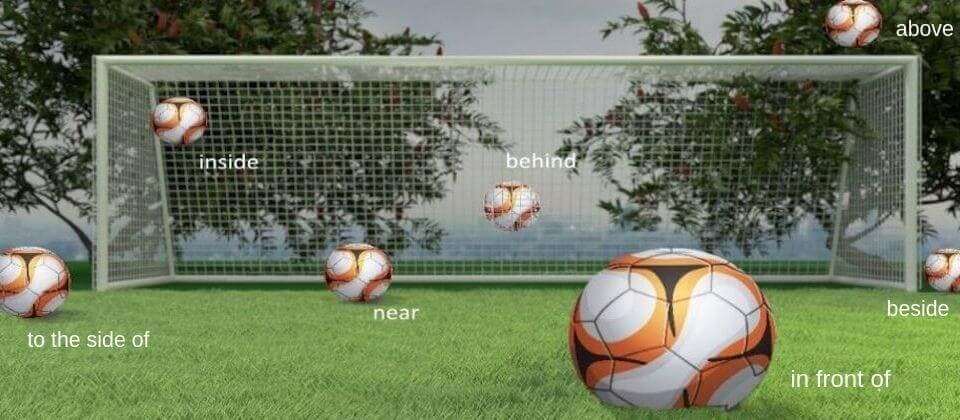Preposition Definition AND Types

The preposition definition can be confusing. A preposition is a word that is used to link nouns, pronouns or phrases to other parts of a sentence. They express the relationship of time and space between different elements. Below we’ll explore preposition definition and types with examples.
Prepositions are always followed by a noun or a pronoun, never a verb.
Most prepositions are a single word, but a few are made up of 2 or 3 words.
TYPES OF PREPOSITIONS
There are a hundred or more prepositions in English, divided into categories:
prepositions of time
prepositions of place
preposition of direction / movement
NOTE – some prepositions appear in more than one category/p>
PREPOSITIONS OF TIME
Prepositions of time communicate when or for how long something happened.
They are used with hours, days, dates, seasons, celebrations, parts of the day and other indicators of time.
USES
in – meaning ‘during the course of ‘
My birthday is in January.
at – refers to a specific time
We are meeting for dinner at 8pm.
on – refers to a specific day or date
Tony arrived on Friday.
for – used with a duration of time
I’ve lived here for six years
since – looks back to when something started
They’ve been married since 1985.
by – up to a point in time
It gets dark by about 4pm in winter in England.
within – sets a time limit for something
He should be here within an hour.
before – refers to a time prior
He learned to walk before he was one.
after – refers to a time past another time or event
We got home after midnight.
during – something happens while something else is happening
My phone rang during the meeting.
ago – refers to how far back something happened
We first went to Mexico twelve years ago.
until – up to a certain point in time
I read until I fell asleep.
from…to – for specifying a period of time with a start and end
I work from Mondays to Fridays.
to – used for telling the time
The train arrived at ten minutes to three.
past – used for telling the time
The train lest at five minutes past four.
PREPOSITIONS OF PLACE
These prepositions express where something/someone is located in relation to something/someone else.
Generally the meaning is very literal, and easy to understand:
The dog is in his bed.
The cup is on the table.
My house is across the street from hers.
We lay beneath the tree.
USES
*usually we use in with places. The exception is when talking about stops on a journey, then we use at
at or on with addresses?
at – with the exact address with the number
She lives at 25 London Road.
on – with approximate address
She lives on London Road.
Sometimes the meaning can be nuanced, and also easily swayed by context, for example:.
PREPOSITIONS OF DIRECTION / MOVEMENT
These prepositions show movement from one place to another, and to indicate a direction
She was cycling along the road.
He came running up the stairs.
He kicked the ball to me.
We drove around all night.
PRACTICE EXERCISES
1. Choose the correct preposition – in, at, on
_____ Monday
_____ January
_____ midnight
_____ foot
_____ the left
_____ Christmas Day
_____ Christmas
_____ 1922
_____ the weekend
_____ the sea
2. Find the incorrect use of a preposition
a. at the bus
b. in the car
c. up the steps
d. along the corridor
3. Which one is incorrect?
a. around the corner
b. in hospital
c. on the school
d. beside the fence
Answers
1. on, in, at, on, on, on, at, in, at/on, in
2. a 3. c
